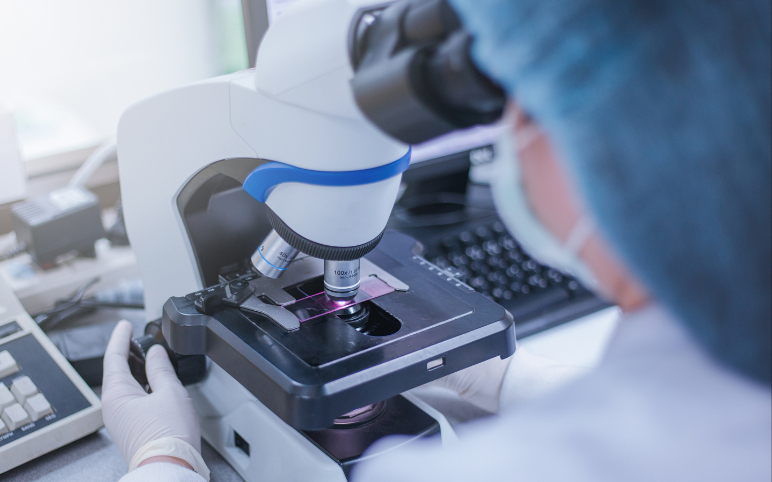ResMed intends to retain all Somnoware staff, integrate its offerings into the ResMed brand and solution ecosystem, and maintain the open and device-agnostic nature of Somnoware’s offerings so end users can keep interoperating with various testing solutions and place orders for treatment devices and accessories from any supplier.
The transaction’s financial terms are not material to ResMed’s consolidated financial results and were not disclosed.
“We are thrilled to welcome the Somnoware team to ResMed,” said ResMed Sleep & Respiratory Care President Lucile Blaise. Lucile Blaise added, “We’re committed to driving wider adoption of Somnoware’s open and interoperable platform to help more people with OSA or COPD get the diagnoses and treatment solutions they need. Improving patients’ experience and health outcomes is our common goal.”
“We are very excited about this acquisition,” said ResMed North America General Manager Bill Shoop. Bill Shoop further said, “Somnoware’s offering has been well received in the marketplace, and it naturally complements our ecosystem of digital solutions across the patient care pathway. Our team is excited to add Somnoware to our portfolio of solutions to help physicians, sleep labs, and HMEs drive greater efficiency and deliver better patient care.”
“I’m thrilled to join forces with ResMed and embark on a shared mission of guiding people toward better sleep and improved breathing. Our partnership will open new avenues to help physicians with the critical task of chronic care management,” said Subath Kamalasan, Somnoware co-founder and CEO. Subath Kamalasan also commented, “Together, we are committed to driving innovation and delivering solutions that improve the health of patients with sleep disorders and other chronic respiratory diseases.”
As per DelveInsight’s “Sleep Tech Devices Market” report, the global sleep tech devices market was valued at USD 16,941.46 million in 2022, growing at a CAGR of 17.31% during the forecast period from 2023 to 2028 to reach USD 44,038.42 million by 2028. The demand for sleep tech devices is primarily being boosted by the increasing patient population suffering from various sleep disorders such as insomnia, obstructive sleep apnea, and others, the surge in cases of depression, increasing number of risk factors such as obesity and smoking among others associated with causing poor sleep, rise in the number of sleep awareness campaigns and programs highlighting the importance of sleep, and innovation in product development among others, thereby contributing to the overall growth of the sleep tech devices market during the forecast period from 2023-2028.
Stryker Launched Q Guidance System with Cranial Guidance Software
On July 11, 2023, Stryker, one of the world’s leading medical technology companies, launched its Q Guidance System with Cranial Guidance Software to provide surgeons with an image-based planning and intraoperative guidance system that assists in positioning instruments and identifying patient anatomy during cranial surgery. The software can be used for craniotomies, skull base and transsphenoidal procedures, shunt placements, and biopsies.
The Q Guidance System with Cranial Guidance Software uses both active and passive tracking technology to provide ground-breaking planning and guidance capabilities that include:
- Proprietary camera: The new 4th generation FP8000 camera offers increased speeds compared to products currently offered in the market
- Dual PC system: One PC powers the operating system’s applications while the other provides real-time patient data
- Diffusion Tensor Imaging (DTI) and tractography: DTI uses anisotropic diffusion to estimate the brain’s axonal organization, reconstructed in 3D
- Precision Targeting System: Enables navigated biopsy of cranial tissue by using comprehensive guidance data and imaging to pre-plan an approach for an entry point
- Electromagnetic catheter placement: Enables pinless shunt procedures
“With Cranial Guidance Software powered by Q, neurosurgeons have more surgical planning and guidance capabilities than ever before, with a special focus on biopsies and shunt placements,” said Robbie Robinson, president of Stryker’s Spine division. Robbie Robinson added, “This technology has the potential to become the standard of care and a possible means to increase accuracy and efficiency in the operating room.”
“With Stryker’s new camera technology, we were able to quickly register patients using the CranialMask Tracker,” said Dr. J.D. Day, M.D. of UAMS Health in Little Rock, Arkansas. Dr. J.D. further commented, “The new user interface and workflows are slick, and our staff loves the intuitive new views like 3D targeting and the new skull stripping feature.”
According to DelveInsight’s “Image-Guided Surgery Devices Market” report, the global image-guided surgery devices market was valued at USD 5,540.87 million in 2022, growing at a CAGR of 5.81% during the forecast period from 2023 to 2028 to reach USD 7,765.22 million by 2028. The image-guided surgery devices market is observing remarkable market growth due to the factors such as the escalating burden of the geriatric population prone to chronic diseases and the rising prevalence of chronic diseases such as cardiovascular, cancers, neurological, and others across the globe. Further, a gradual increase in approval of image-guided surgery devices, rapid technological advancement in the products, increasing demand for minimally invasive surgeries, and others will create a necessity for Image Guided Surgery Devices in the market. Therefore, the market for image-guided surgery devices is estimated to grow at a substantial CAGR during the forecast period from 2023 to 2028.
AlloSource Received FDA 510(K) Clearance for AceConnex™ Pre-Sutured Fascia for Hip Labral Reconstruction and Augmentation
On July 11, 2023, AlloSource®, one of the largest allograft providers creating innovative cellular and tissue products to help surgeons heal their patients, received the U.S. Food and Drug Administration’s 510(K) clearance of AceConnex Pre-Sutured Fascia for hip labral reconstruction and augmentation. This product reinforces AlloSource’s commitment to providing innovative products to support the overall sports medicine market, including hip arthroscopy.
The AceConnex Pre-Sutured Fascia is a tool used in soft tissue surgeries where constructs, particularly those with allograft tissue, are employed for labrum reconstruction, replacement, or augmentation. The sterile, ready-to-use device will come in a variety of pre-sutured sizes and have trimmable sections that enable allograft changes to fit patients’ anatomy. In contrast to allografts that are manually sutured pre-operatively, AceConnex Pre-Sutured Fascia is manufactured to assure consistency and minimize variability. Fascia allografts have a long history of being used successfully for labral reconstruction.
“AceConnex Pre-Sutured Fascia was designed to help hip arthroscopists efficiently treat their patients by eliminating time and tedious effort associated with suturing in the OR,” said Carolyn Rorick, AlloSource Senior Director of Product Development, Innovation, and Clinical Affairs. Carolyn also said, “We spent an extensive amount of time perfecting our design and suturing technique to ensure consistency, and that design is now patented.”
“AceConnex Pre-Sutured Fascia is integral to our mission of providing innovative allografts to advance patient healing,” said Dean Elliott, AlloSource President, and CEO. Dean Elliott further added, “We are proud to be first to market with an FDA-cleared pre-sutured fascia device to meet the varying needs of hip arthroscopists and patients.”
According to DelveInsight’s “Surgical Sutures Market” report, the global surgical sutures market was valued at USD 3.56 billion in 2022, growing at a CAGR of 6.64% during the forecast period from 2023 to 2028, to reach USD 5.24 billion by 2028. The increase in demand for surgical sutures is predominantly attributed to the rise in the volume of surgeries worldwide. Moreover, an increase in various diseases such as arthritis, spinal deformities, and cancers, among others which require surgery for their management, a rise in non-fatal injuries, growing approval of products, and launches of various advanced surgical sutures are anticipated to bolster the demand for these sutures thereby leading to an increase in the global market for surgical sutures during the forecasted period.
Urotronic Announced FDA Approval of Optilume® BPH Catheter System
On July 11, 2023, Cardio Flow Design Inc., a medical device company developing and commercializing Optilume®, a proprietary drug-coated balloon technology that provides a minimally invasive treatment option for men suffering from urinary tract conditions like urethral strictures and benign prostatic hyperplasia (BPH), announced that it had received U.S. Food and Drug Administration (FDA) approval of its Optilume® BPH Catheter System, a unique minimally invasive surgical therapy (MIST) that combines mechanical dilation using a proprietary double-lobe balloon with concurrent localized delivery of paclitaxel for the treatment of lower urinary tract symptoms (LUTS) secondary to BPH.
Mechanical dilation with Optilume BPH achieves an anterior commissurotomy, while the delivery of paclitaxel is intended to maintain luminal patency during healing.
Optilume BPH is a minimally invasive outpatient procedure engineered to alleviate urinary symptoms caused by BPH, a condition affecting 70% of men 60-69 years of age and 80% of those 70 or older. By combining mechanical dilation with the safe and proven drug paclitaxel, the Optilume BPH Catheter System achieves an anterior commissurotomy, while the delivery of paclitaxel is intended to maintain luminal patency during healing.
“With the highest reported Qmax in BPH MIST trials to date, Optilume BPH is the next generation of minimally invasive technology, creating a new drug-device space among BPH therapies,” said Dr. Steven A. Kaplan, professor of urology at the Icahn School of Medicine at Mount Sinai in New York. “The positive data from the PINNACLE and EVEREST trials demonstrate clear and compelling sustained clinical outcomes through four years post-treatment,” also said Dr. Kaplan.
“There’s nothing else like Optilume BPH that’s currently available. It’s the only treatment option that requires no cutting, burning, steaming, or implants,” said Urotronic President and CEO David Perry. David Perry also said, “This advancement, backed by strong clinical outcomes, has the potential to improve the quality of life for millions of patients looking for a solution for BPH and its associated lower urinary tract symptoms. Drug-coated balloons are the future of interventional urology.”
According to DelveInsight’s “Urinary Catheters Market” report, the global urinary catheters market was valued at USD 3.29 billion in 2022, growing at a CAGR of 6.64% during the forecast period from 2023 to 2028, to reach USD 4.82 billion by 2028. The increase in demand for urinary catheters is predominantly attributed to the growing cases of urological disorders such as urinary incontinence, benign prostatic hyperplasia, among others, rising old age population across the globe, increase in the number of surgical procedures, and advancement in the materials used to manufacture urinary catheters, among others.
Verve Medical Announced FDA Approval of IDE for Pivotal Trial of RPD™ Renal Pelvic Denervation System for Treatment of Uncontrolled Hypertension
On July 11, 2023, Verve Medical, Inc., an early-stage medical device company, received approval from the US Food & Drug Administration (FDA) to initiate its Natural Orifice via renal pelvis denervation (NOVEL-Denervation) Pivotal IDE trial for the treatment of uncontrolled hypertension to lower blood pressure.
The Verve RPD, NOVEL Pivotal trial will be an up to 300 patients, Phase II/I randomized, sham-controlled, double-blinded study to determine the safety and efficacy of the Verve RPD minimally invasive, non-vascular renal pelvic denervation system to treat hypertension.
Verve’s method, like a typical urology treatment, accesses the renal nerves through the normal aperture of the urethra, in contrast to other renal denervation approaches that use the renal artery. The increased density of innervation in the renal pelvis, where access is simpler than with the conventional arterial renal denervation strategy, likely makes the Verve RPD system, which ablates afferent and efferent nerves, more successful.
“The Verve RPD, NOVEL – Denervation, Pivotal trial will be another critical milestone toward making this differentiated therapy available to helping the over one billion uncontrolled hypertension patients worldwide, including 80 million in the U.S, who struggle with managing this serious condition,” said Verve President and CEO, David Springer. David further added, “This Pivotal trial is designed to provide the basis for approval of the procedure in the US.”
According to DelveInsight’s “Hypertension Drugs Market” report, the global hypertension drugs market is estimated to grow at a CAGR of 3.3% during the forecast period from 2023 to 2028. The demand for hypertension drugs is primarily being boosted by the growing prevalence of hypertension, the rising number of obese and overweight individuals, growing awareness of high blood pressure and related consequences, and rising cases of psychiatric comorbidities associated with uncontrolled hypertension, among others further contributing in the overall growth of the hypertension drugs market during the forecast period from 2023-2028.
OncoBeta® GmbH Provided Update on Phase IV Clinical Trial
On July 11, 2023, OncoBeta® GmbH, a medical device company specializing in innovative epidermal radioisotope therapies, confirmed the Phase IV international multi-center study designed to further evaluate the Complete Response Rate of patients with non-melanoma skin cancer after treatment with Rhenium-SCT® is now fully recruited.
The EPIC-Skin study (Efficacy of Personalised Irradiation with Rhenium-SCT for the treatment of non-melanoma skin cancer) is based on the proven effect of the ß-emitter rhenium-188 in the treatment of basal cell (BCC) and squamous cell carcinomas (SCC).
The study aims to further evaluate the efficacy of Rhenium-SCT® as well as important Patient Reported Outcome Measures such as quality of life, treatment comfort, and cosmetic outcomes.
The Rhenium-SCT is a painless, single-session, non-invasive therapy that provides aesthetic results, even in cases otherwise considered difficult to treat. The Rhenium-SCT utilizes the radioisotope Rhenium-188 in an epidermal application with optimal properties for the treatment of NMSCs (non-melanoma skin cancers). The Rhenium-SCT is a precise, personalized therapy that is only applied to the area needed for treatment without affecting the healthy tissue.
Patients treated with therapy had confirmed histopathology of stage I or II non-melanoma skin cancer. With the latest treatment round complete, all patients are now in the follow-up phase, which monitors the quality of life, treatment comfort, and cosmetic outcomes over the next 24 months. An interim analysis is expected to be published in mid-2023.
The EPIC-Skin study is being conducted across five countries and seven major cities, including Rostock, Vienna, London, Pretoria, Gold Coast, Perth, and Sydney, with more than 180 patients taking part.
Dr. Gerhard Dahlhoff, Medical Director at OncoBeta® GmbH, stated, “We are excited to complete the final patient recruitment within EPIC-Skin as we will now start to receive data on the quality-of-life outcomes. With patients in study centers across Australia, Austria, Germany, the United Kingdom, and South Africa, we have a mix of patients, ethnicities, NMSC localisations, and lesion characteristics, which will enable us to even further evaluate the outcomes of treatment with Rhenium-SCT®.”
Shannon D. Brown III, CEO, and Managing Director at OncoBeta® GmbH, said, “The patient journey is often a difficult one, so the medical community must continue to improve and develop new treatment options for patients with NMSCs. The EPIC-Skin clinical study has the potential to influence and change the way we evaluate and fit NMSC treatments to the individual needs and requirements of patients.”
According to DelveInsight’s “Radiotherapy/Radiation Oncology Devices Market” report, the global radiotherapy/radiation oncology devices market is projected to grow at a 7.78%CAGR during the forecast period (2023-2028). The radiotherapy/radiation oncology devices market is witnessing positive growth owing to factors such as the rising cases of various cancers, further rapid technological developmental activities, strong R&D initiatives from key players, rising adoption of radiotherapy procedures in cancer treatment, growing demand for minimally invasive procedures, thereby contributing to the growth of the radiotherapy/radiation oncology devices market during the forecast period from 2023-2028.



